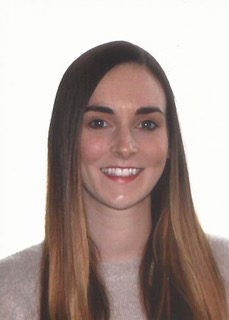Feature: Facilitating a collaborative learning process
Dr. Nicole Hugel, MD’13 and resident alumna, is thrilled to be back at the Schulich School of Medicine & Dentistry – as an Adjunct Professor of Medicine and as a learner once again.
A general internist specializing in obstetric medicine, Hugel always planned to incorporate medical education into her career in a significant way.
While on residency rotation in Windsor, Hugel first connected with Dr. Larry Jacobs, Associate Dean, about her passion for teaching. Following her fellowship in obstetric medicine at the University of British Columbia, she joined the faculty at the Schulich Medicine & Dentistry – Windsor Campus.
 Stepping into the world of medical education has inspired Hugel to pursue a Master of Health Professions Education, a collaborative program between the School’s Centre for Education Research & Innovation and the University of Maastricht in the Netherlands.
Stepping into the world of medical education has inspired Hugel to pursue a Master of Health Professions Education, a collaborative program between the School’s Centre for Education Research & Innovation and the University of Maastricht in the Netherlands.
“As a practitioner and medical educator, I place a lot of importance on having good training. Certainly, every day in medicine involves some sort of teaching opportunity. But this is giving me the chance to dive deeper into the theoretical background of medical education,” she said.
Hugel is currently the course lead at the Windsor Campus for the Principles of Medicine I and the internal medicine portion of the Transition to Clerkship courses, offering her a chance to connect with students at important touchpoints in their medical school journey. Her diverse teaching portfolio also includes curriculum development, small-group teaching and teaching during third- and fourth-year clinical rotations.
“What I love the most about working in Windsor is the longitudinal aspect. Because we are a smaller campus, there’s an opportunity to interact with the students on an individual level. It’s really wonderful to be a part of their learning experience and their career growth,” Hugel shared.
She says her goal as an educator is to uplift students and instill in them independence, adaptability and confidence in their abilities.
“I see myself more as a facilitator, helping them navigate through issues themselves. I think it's important to have an open environment to discuss what's hard about medicine, and what's going well and what isn’t, because that’s the greatest way to learn.”
It’s an approach that extends to Hugel’s clinical work as well, where she specializes in the care of patients with chronic medical conditions and medical complications of pregnancy; before pregnancy, during pregnancy and post-partum.
“The part that I love most about obstetric medicine is the time you get to spend with patients, focused on their individual needs, providing counsel and helping people feel in control of their underlying medical condition and pregnancy,” she said.
“Whether you’re teaching students or educating patients, you can develop a really collaborative relationship during that learning process.”








